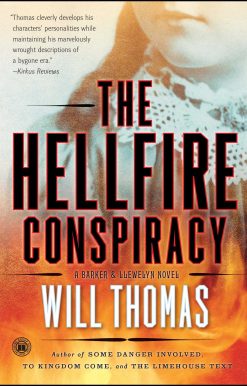The Man Who Saw Everything
16.00 JOD
Please allow 2 – 5 weeks for delivery of this item
Add to Gift RegistryDescription
An electrifying and audacious novel about beauty, envy, and carelessness by Deborah Levy, two-time Man Booker Prize finalist.It is 1988 and Saul Adler, a narcissistic young historian, has been invited to Communist East Berlin to do research; in exchange, he must publish a favorable essay about the German Democratic Republic. As a gift for his translator’s sister, a Beatles fanatic who will be his host, Saul’s girlfriend will shoot a photograph of him standing in the crosswalk on Abbey Road, an homage to the famous album cover. As he waits for her to arrive, he is grazed by an oncoming car, which changes the trajectory of his life—and this story of good intentions and reckless actions. The Man Who Saw Everything is about the difficulty of seeing ourselves and others clearly. It greets the specters that come back to haunt old and new love, previous and current incarnations of Europe, conscious and unconscious transgressions, and real and imagined betrayals, while investigating the cyclic nature of history and its reinvention by people in power. Here, Levy traverses the vast reaches of the human imagination while artfully blurring sexual and political binaries—feminine and masculine, East and West, past and present—to reveal the full spectrum of our world.
Additional information
| Weight | 0.18 kg |
|---|---|
| Dimensions | 1.4 × 13.21 × 20.3 cm |
| PubliCanadation City/Country | Canada |
| Author(s) | |
| Format | |
| language1 | |
| Pages | 208 |
| Publisher | |
| Year Published | 2021-1-5 |
| Imprint | |
| ISBN 10 | 0735236461 |
| About The Author | DEBORAH LEVY is the author of seven novels: Beautiful Mutants, Swallowing Geography, The Unloved, Billy and Girl, Swimming Home, Hot Milk, and The Man Who Saw Everything. She has been shortlisted twice each for the Goldsmiths Prize and the Booker Prize. Her short story collection, Black Vodka, was nominated for the International Frank O'Connor Short Story Award and was broadcast on BBC Radio 4, as were her acclaimed dramatizations of Freud's iconic case studies, Dora and The Wolfman. She has also written for The Royal Shakespeare Company and her pioneering theatre writing is collected in Levy: Plays 1. Her work is widely translated. Levy is a Fellow of the Royal Society of Literature. She is also the author of a formally innovative and emotionally daring trilogy of memoirs, a "living autobiography" on writing, gender politics and philosophy, of which Real Estate is the final volume. The first two volumes, Things I Don't Want to Know and The Cost of Living, won the Prix Femina Etranger 2020. |
Longlisted for the 2019 Booker Prize A Lambda Literary Award 2020 finalistA CBC Best International Fiction of 2019 selectionOne of The Sunday Times’ (UK) “picks of the best paperbacks”Praise for The Man Who Saw Everything:“A Rubik's cube of a book . . . Ripe and rich . . . [Levy] is writing with gorgeous, juicy assurance here. It’s stylish: written with a speedy, vivid economy, her characters’ eccentricities leaping off the page. It’s funny: Saul’s narcissistic narration is full of deadpan details of youthful pretentiousness, social awkwardness. It’s sexy: Levy writes keenly about layered attraction and resentment, how her characters bestow and withdraw gifts of sex and affection. And it’s political: the novel exposes the hypocrisies that accompany rigid ideology, but also questions how an individual can live with integrity if they only live for themselves.”—The Independent“Writing so beautiful it stops the reader on the page.” ―Independent“[Levy] loves to yank at our wiring, our orienting premises and prejudices . . . Her prose is light-handed and leaves a pleasant sting . . . Her rich, obsessional body of work is consumed by questions of how scripts—of gender, nationality, identity—paper over how fundamentally, how painfully, unknowable we are to ourselves, and the catastrophes that this blindness sets in motion.” —The New York Times“The Man Who Saw Everything is a brilliantly constructed jigsaw puzzle of meaning that will leave readers wondering how much they can every truly know.” —The Washington Post “Extraordinary . . . Levy’s style is crisp, taut, even as she writes a dreamlike story.” —The Toronto Star“Electrifying . . . The novel explores both what we see and what we miss until the past and present are staring directly at us.” —The Sunday Times “There are lyrical passages about lake swimming, cold white wine and pasta restaurants in Soho alongside intense psychological probing of childhood, parental duty and sexual attraction. It’s clever, raw, and it doesn’t play by any rules.” —The London Evening Standard“An innovative novel set in communist East Berlin. The personal and political histories entwine in a story of memory, loss and art.” —The Daily Telegraph“Levy splices time in artfully believable, mesmerizing strokes.” ―Lambda Literary“Head-spinning and playful yet translucent, Levy’s writing offers sophistication and delightful artistry. Levy defies gravity in a daring, time-bending new novel.” —Kirkus (starred review)“An eye-opening read . . . Against a backdrop in which surveillance and paranoia are rampant, Levy explores parallels between political and personal history, questions of trustworthiness, and the discrepancies between how we see ourselves and how we're seen by others . . . Levy's writing is playful, smart, and full of memorable lines.” —NPR “[The Man Who Saw Everything] confirms Levy’s rare—and ever more relevant—vision. In one short and sly book after another, she writes about characters navigating swerves of history and sexuality, and the social and personal rootlessness that accompanies both . . . Levy’s most stylistically complex novel yet . . . Levy’s boldness, and her voice, are hard earned . . . Levy doesn’t whisper in her fiction, but in her slim, elliptical books, she unspools big odysseys.” —The Atlantic“[In The Man Who Saw Everything] Levy is able to explode narrow ideas of sexuality, morality, and even time, exploring the vast possibilities of the human experience.” —BuzzFeed News, “The Best Books of 2019”“An utterly beguiling fever dream of a novel. . . . Its sheer technical bravura places it head and shoulder above pretty much everything else on the [Booker] longlist.” ―Daily Telegraph “A time-bending, location-hopping tale of love, truth and the power of seeing. . . . Increasingly surreal and thoroughly gripping.” ―Sunday Telegraph “Exquisite. . . . A brilliant Booker nominee.” ―The Guardian “One of the big stories in English fiction this decade has been the return and triumph of Deborah Levy. . . . You would call her example inspiring if it weren’t clearly impossible to emulate.” ―New Statesman “An ice-cold skewering of patriarchy, humanity and the darkness of the 20th century Europe.” ―The Times “Charged with themes spanning memory and mortality, beauty and time, it’s as electrifying as it is mysterious.” ―Mail on Sunday “Intelligent and supple. . . . [A] dizzying tale of life across time and borders.” ―Financial Times “Levy . . . is a master of the seemingly loose yet actually taut story. . . . Levy's prose in The Man Who Saw Everything is controlled, refractive, sharply intelligent. There’s no wasted motion. Single sentences render character with the clarity, and cruelty, of a snapshot. . . . Love is unsettling, Levy suggests, and so is time, and so is sexuality, and so is the self. The Man Who Saw Everything, in its ghostly play of personal and political histories, bears witness to this truth.” ―The Boston Globe “Deborah Levy's novels are small masterworks of inlay, meticulously constructed. And The Man Who Saw Everything is perhaps her cleverest. . . . Few writers, for example, can summon sadness with such force. . . . Big ideas thud onto the page, like apples hitting the roof of that garden shed, but we hardly hear them. Deborah Levy makes us listen instead for the fragile rhythm of a breaking heart.” ―Wall Street Journal “A work of philosophy and art. . . . Each [Booker] finalist Deborah Levy writes comes nearer perfection.” ―New York Journal of Books “Deborah Levy, one of the most intellectually exciting writers in Britain today, has produced in this perplexing work a caustically funny exploration of history, perception, the nature of political tyranny and how lovers can simultaneously charm and erase each other.” ―New York Times Book Review “Booker Prize–finalist Levy . . . explores the fragile connections and often vast chasms between self and others in this playful, destabilizing, and consistently surprising novel. . . . [The Man Who Saw Everything] brilliantly explores the parallels between personal and political history, and prompts questions about how one sees oneself-and what others see.” ―Publishers Weekly (starred review) “There is no way to succinctly summarize this slim book and adequately convey how it manages to hold exquisitely actual multiverses within its pages. . . . A brilliant, blistering, bold look at identity, relationships, and time; a perfect puzzle of a novel.” ―Nylon"Electrifying and profound . . . Deborah Levy’s Booker-longlisted novel scrutinises the interior world of its characters with laser-like precision . . . Levy sets the standard for contemporary psychological narratives that are unflinching in their pursuit of truth." —The Irish Times “The Man Who Saw Everything [is] less a journey of discovery, a bildungsroman, than its opposite: a saga of unraveling. And that, in turn, gives the book an understated power, as we confront a writer working against expectation to subvert the conventions of the novel, to rethink the form on her own terms.” —The New Republic“[A] masterful story . . .”—The Sunday Times (UK) “Deborah Levy’s haunting and effective novel The Man Who Saw Everything is like a beautiful shattered mirror. The reader (and Saul) have the impossible task of putting together that mirror in the second half. That’s what makes it so ambiguous and uncomfortable and irresistible . . . How do we see ourselves? Do we see ourselves like others see us? The book provokes and shakes you up, shattering perception.” —The Associated Press |
|
| Excerpt From Book | I was thinking about how Jennifer Moreau had told me I was never to describe her beauty, not to her, or to anyone else. When I asked her why I was silenced in this way, she said, ‘Because you only have old words to describe me.’ This was on my mind when I stepped onto the zebra crossing with its black and white stripes at which all vehicles must stop to allow pedestrians to cross the road. A car was coming towards me but it did not stop. I had to jump backwards and fell on my hip, using my hands to protect myself from the fall. The car stalled and a man rolled down the window. He was in his sixties, silver hair, dark eyes, thin lips. He asked if I was okay. When I did not answer he stepped out of his car.‘I apologize,’ he said. ‘You walked on to the crossing and I slowed down, preparing to stop, but then you changed your mind and walked back to the kerb.’ His eyelids were quivering at the corners. ‘And then without warning you lurched forward on to the crossing.’ I smiled at his careful reconstruction of history, blatantly told in his favour. He furtively glanced at his car to check if it had been damaged. The wing mirror had shattered. His thin lips parted and hesighed sorrowfully, muttering something about how he had ordered the mirror from Milan. I had been up all night writing a lecture on the psychology of male tyrants and I’d made a start with the way Stalin flirted with women by flicking bread at them across the dinner table. My notes, about five sheets of paper, had fallen out of my leather sling bag and, embarrassingly, so had a packet of condoms. I started to pick them up. A small, flat, rectangular object was lying in the road. I noticed the driver was looking at my knuckles as I handed him the object, which felt warm and seemed to be vibrating in my palm. It was not mine soI assumed it was his. Blood dripped through my fingers. My palms were grazed and there was a cut on the knuckle of my left hand. I sucked it while he watched me, clearly distressed.‘Do you need a lift somewhere?’‘I’m okay.’He offered to take me to a pharmacy to ‘clean up the wound’, as he put it. When I shook my head, he reached out his hand and touched my hair, which was strangely comforting. He asked for my name.‘Saul Adler. Look, it’s just a small graze. I have thin skin. I always bleed a lot, it’s nothing.’He was holding his left arm in a strange way, cradling it with his right arm. I picked up the condoms and shoved them into my jacket pocket. A wind was up. The leaves that had been swept into small piles under the trees were blowing across the road. The driver told me the traffic had been diverted because there was a demonstration that day in London, and he’d wondered if Abbey Road was closed off. The detour was not signposted clearly. He did not understand why he’d become confused, because he often came this way to watch the cricket at Lord’s, nearby. While he spoke, he gazed at the rectangular object in his hand.The object was speaking. There was definitely a voice inside it, a man’s voice, and he was saying something angry and insulting. We both pretended not to hear his words. Fuck off I hate you don’t come home‘How old are you, Soorl? Can you tell me where you live?’I think the near collision had really scared the driver.When I told him I was twenty-eight, he didn’t believe me and asked for my age again. He was so posh he pronounced my name as if a pebble had been inserted between the roof of his mouth and his lower lip. His silver hair was slicked back with a product that made it shine. I in turn asked for his name.‘Wolfgang,’ he said very quickly, as if he did not want me toremember it.‘Like Mozart,’ I said, and then, rather like a child showing his father where he’d been hurt after falling off a swing, I pointed to the cut on my knuckle and kept repeating that I was okay. His concerned tone was starting to make me tearful. I wanted him to drive off and leave me alone. Perhaps the tears were to do with my father’s recent death, though my father was not as groomed or as gentle as shiny, silver-haired Wolfgang. To hasten his departure, I explained that my girlfriend was about to arrive any minute now, so he didn’t have to hang around. In fact she was going to take a photograph of me stepping on to the zebra crossing in the style of the photograph on the Beatles album.‘Which album is that, Soorl?’‘It’s called Abbey Road. Everyone knows that. Where have youbeen, Wolfgang?’He laughed but he looked sad. Perhaps it was because of the insultingwords that had been spoken from inside the vibrating object in his hand.‘And how old is your girlfriend?’‘Twenty-three. Actually, Abbey Road was the last album the Beatles recorded together at the EMI studios, which are just over there.’ I pointed to a large white house on the other side of the road.‘Of course, I know that,’ he said sadly. ‘It’s nearly as famous as Buckingham Palace.’ He walked back to his car, murmuring, ‘Take care, Soorl. You’re lucky to have such a young girlfriend. By the way, what do you do?’ His comments and questions were starting to irritate me – also the way he sighed, as if he carried the weight of the world on the shoulders of his beige cashmere coat. I decided not to reveal that I was a historian and that my subject was communist Eastern Europe.It was a relief to hear the animal growl of his engine revving as I stepped back on the pavement. |
Only logged in customers who have purchased this product may leave a review.






Reviews
There are no reviews yet.